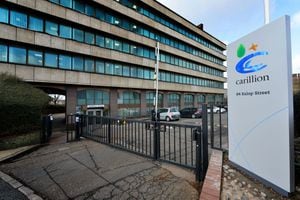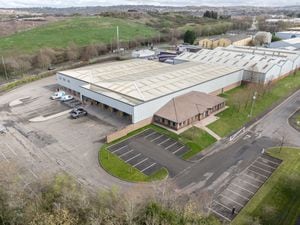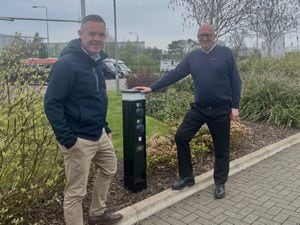Last Carillion contracts transferred as liquidation enters final phase
The liquidation of Carillion has entered its final stages, the Official Receiver has revealed, with the last of its contracts taken over by new companies.

More than 400 people have been transferred along with the new contracts, bringing the number of jobs saved following the collapse to 13,945 – nearly three in four of the original workforce.
But another nine will leave this week, bringing the total job losses at the construction and services giant to 2,787.
Another 240 staff are being kept on to handle paperwork and ensure companies supplying Carillion during the liquidation will be paid. Around 120 of them are based at the company's former head offices in Salop Street, in Wolverhampton city centre. It is not known how long their jobs will last.
It brings to a virtual end the largest ever trading liquidation in UK company history. Carillion collapsed in January after the Government refused to bail the company out.
The Official Receiver called in accountants PwC to act as special managers of the process, which involved finding new companies to take over hundreds of Carillion contracts, including 450 with Government departments. These contracts were kept running to ensure essential public services across hospitals, schools, roads, rail and elsewhere were maintained.
But work on the Midland Metropolitan Hospital at Smethwick was brought to a halt and remains stalled. Latest estimates are that may now open four years late, in 2022.
In an update the Official Receiver said agreements to transfer the last of 278 contracts provided by Carillion to new service providers were now in place "signalling the end of the trading phase of the liquidation."
Commenting on the milestone, the Official Receiver, Dave Chapman, said: "Carillion is the largest ever trading liquidation in the UK. The continued uninterrupted delivery of essential public services since the company’s collapse in January reflects the significant effort put in by its employees, supported by my team and those employed by thespecial managers.
"During this period 83 per cent of the original workforce have either transferred with the contracts or resigned with another job to go to. Staff have been very professional throughout the liquidation and I want to thank them for their support as we worked to find new suppliers.
"The focus of the liquidation will now shift to the provision of limited transitional services for some supplier and finalising Carillion’s trading accounts to ensure that payment is made to suppliers who have provided goods and services to the various liquidations. Suppliers are asked to ensure they supply their final accounts as soon as possible.
"My investigation into the cause of the company’s failure, including the conduct of its directors, is also underway."
The probe by the Official Receiver and the Insolvency Service is one of a string of investigations into the collapse that are currently under way. The company's bosses have already come in for fierce criticism from a pair of MP committees looking into the Carillion failure.
The collapse is expected to cost the taxpayer around £150 million but the total debts of the business are expected to be in the billions, including a black hole in its pensions and bills owed to hundreds of supplier companies when it went bust in January. It is still unclear the impact Carillion's collapse had on its supplier network. Some firms have had to write-off millions of pounds and companies owed money by Carillion from work before the group went into liquidation have been warned they could get less than a penny in every pound.





